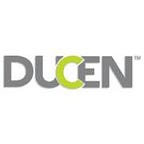The road to Advanced Analytics in Healthcare: Overcoming budget constraints
The healthcare space has much to gain from adopting advanced analytics, a fact that’s becoming more and more apparent during the coronavirus pandemic.
In an industry where evidence-based decision-making and proactive intervention can save lives, it has become critical to analyze massive sets of data to streamline clinical and administrative workflows, enhance diagnostic accuracy, improve patient outcomes, and even lower overall expenditures.
According to a 2017 study by the Society of Actuaries, 93 percent of healthcare executives say predictive analytics is important and shapes the future of their business. But despite the financial gain to be expected from implementing advanced analytics, a lack of budget has been delaying the adoption according to 16% of the healthcare executives, among other roadblocks.
In fact, allocating funds for an initiative this massive can pose to be a challenge, but emphasizing the financial benefits may help build a compelling case.
Battling rising costs in healthcare
Healthcare spending is increasing each year. In 2018, the annual cost of US healthcare was $3.6 trillion, up by 4.6% compared to the previous year. This accounts for 17.7% of the nation’s Gross Domestic Product.
While there is inconsistent evidence in the link between healthcare cost and quality of care, there are current efforts to reduce waste and inefficiencies (and in turn, costs) to improve the patient experience and outcomes.
This includes cutting down on unwarranted variations in medical services and unnecessary tests and procedures, which requires relying on evidence-based insights-and advanced analytics plays an integral role in this regard. To illustrate: For organizations currently using predictive analytics, over 50% of healthcare executives expect to save 15% or more of their total budget over the next 5 years.
Must-read: 4 ways the healthcare industry can benefit from Predictive Analytics
For example, consider hospital readmissions. Approximately 1 in 5 patients are readmitted to the hospital within 30 days of discharge, and studies have shown that low-cost readmitted patients have 28% to 50% higher costs than low-cost non-readmitted patients. What’s more, if the readmission rate exceeds a certain threshold, the hospital can get penalized.
Readmissions are costly, but preventable. In fact, our out-of-the-box machine learning algorithm in Analance can predict patients who are likely to be readmitted with accuracy as high as 61.6%.
With visibility into a patient’s risk of readmission, healthcare organizations can implement proactive measures to lessen unexpected readmissions: requesting relevant screening tests, optimizing transitions after discharge, and scheduling follow-up consultations.
Related: How to predict appointment cancellations & reduce no-shows
Another area that has shown a rise in expenditures is chronic disease, which accounts for 75% of total healthcare costs. This has made it increasingly important for healthcare professionals to identify patient’s risk early on and match it with appropriate levels of care. Take sepsis, the silent killer, as an example. The disease is still the most common cause of in-hospital deaths in the US and costs the country $24 billion a year in medical expenditures.
While effective sepsis management continues to be a challenge, advanced analytics can be used to facilitate early intervention. Analance has shown to predict patients at risk of sepsis with accuracy as high as 95%. Because of this, hospitals and clinics can develop sepsis detection protocols for the emergency department in order to optimize treatment during the critical early intervention period and pay close attention to at-risk cases.
With rising costs in healthcare, adopting measures to implement proactive care and timely intervention can improve processes and reduce inefficiencies-and more importantly, reduce costs.
We are happy to demonstrate how Analance can help you overcome hurdles to healthcare analytics adoption. Request a demo to get more information.
Originally published at http://blog.ducenit.com.
